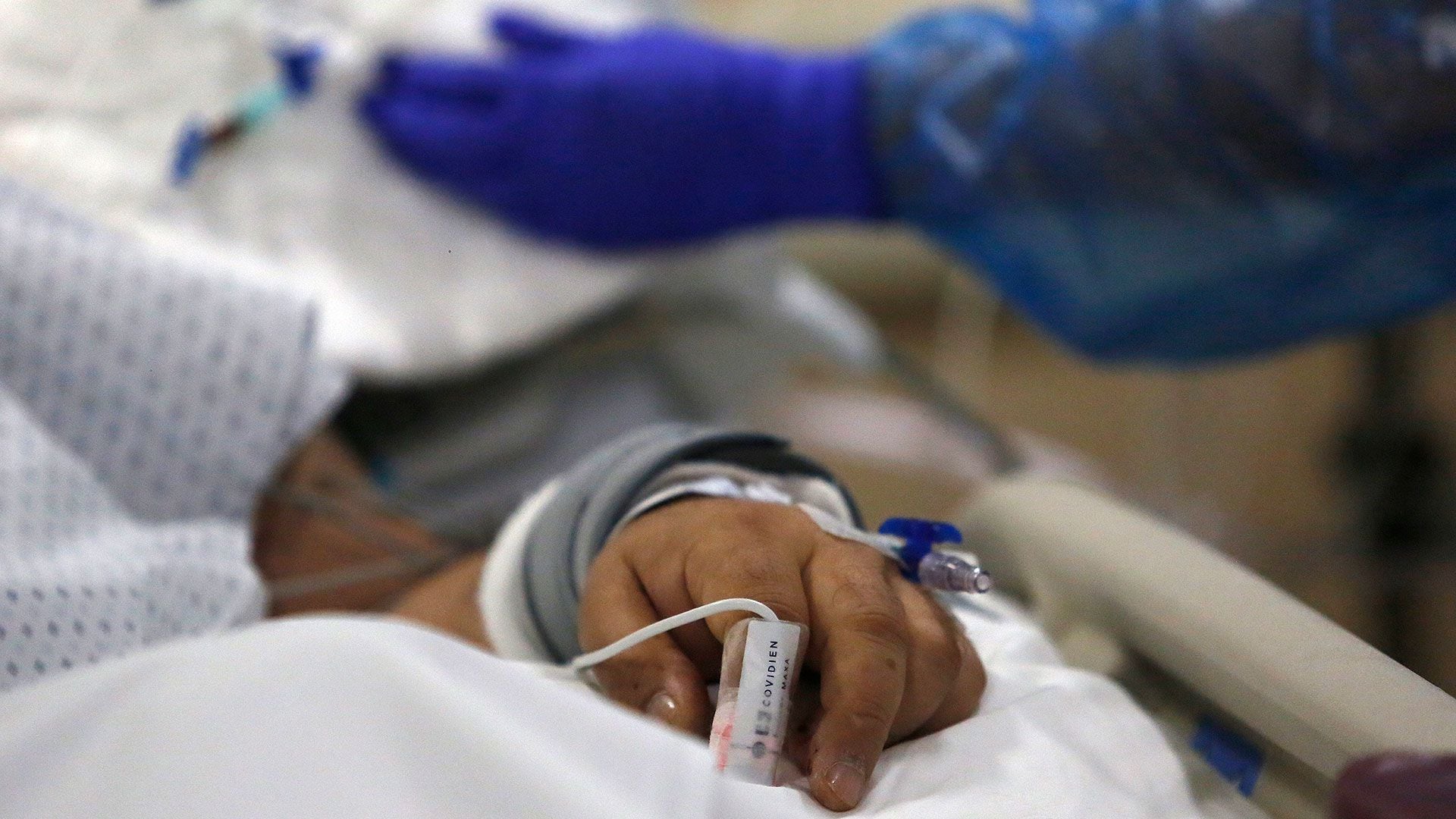
“I am in favor of a dignified death. First because I live in Switzerland, where euthanasia is legal, and also because I think it is the most logical and natural thing,” Alain Delon said in a recent interview. A person has the right to leave in peace, without going through hospitals, injections and so on.” Without saying it directly, the actor advanced what would later be a decision made.
At 86, after recovering from a double stroke in 2019, he let his son Anthony know his desire to end his life. And he instructed him to schedule what will be his assisted suicide.
And although one of the most famous hunks in the history of cinema is endorsed by Swiss law, a country where he lives and where this type of procedure is allowed, the controversy soon took hold.
Can a person decide to end his life and be protected by a law? What happens when - as in this case - those who wish to die do not suffer from a terminal illness or are in an irreversible state of health? Is it moral for a sick person to claim a drug to alleviate unbearable suffering and die? Are you disrespecting life? Is it okay for a doctor, who swore he will do everything he can to save lives, to prescribe treatments that cause death?
Etymologically, the word euthanasia comes from Greek where “Eu” equals good and “Thanatos” equals death. The term, then, means “good death” and can be defined as the deliberate act of ending a person's life, produced by the express will of the person himself and in order to avoid suffering.
Currently, this practice is legal in seven countries: Holland (the pioneer), Belgium (2002), Luxembourg (2009), Colombia (2014), Canada (2016), Spain (June 2021) and New Zealand (November 2021), and some states in Australia and the US.
Thus, unlike what happens in euthanasia, in which the patient is in a terminal state of health abbreviated by doctors, assisted suicide - which is what Delon requested - is done by the person himself, after fulfilling a series of requirements required by Swiss law, the country where the actor resides.
“The question is whether doctors should help a patient who asks for it die. The reality is that there are pathologies and people who suffer intolerable suffering both physically and psychologically,” said Rosa Angelina Pace, surgeon and master's degree in bioethics from the Complutense University of Madrid. “A legal framework is needed to prevent abuse. Without euthanasia law, there are also abuses. In countries where it is authorized, there are specific protocols for health teams. That is why the law protects patients from requiring strict protocols for action.”

“Euthanasia is a patient's right especially with the increasing medicalization of the end of life, but society should be prepared,” philosopher Florencia Luna, former president of the International Association of Bioethics, researcher at Conicet, told Infobae, and director of the master's degree in bioethics from the Latin American Faculty of Social Sciences (FLACSO). “Quality palliative care should be provided. Because this will prevent patients from choosing to die because they have not previously had access to palliative care as an option or the comfort needed to pass that stage,” said the researcher, who is co-author of the book Bioethics: New Reflections on Classical Debates.
In the midst of the debate, Delon seems to have everything organized to carry out the procedure on a scheduled basis and leave nothing left to chance. In the same interview he announced that he has already made his will.
And he even said goodbye: “I would like to thank everyone who has accompanied me over the years and has given me great support, I hope that future actors can find in me an example not only in the workplace, but in everyday life, between victories and defeats. Thank you, Alain Delon.” The message that the actor posted on his Instagram account followed an interview by his son Anthony with a Brazilian media outlet, in which he announced his father's intention to end his life through assisted suicide.
Swiss law requires the express manifestation of the patient carried out on more than one occasion. The last step, after saying goodbye to the family, is for the patient to take a lethal dose of 15 grams of pentobarbital sodium mixed with a drink, possibly juice or water.
As the Swiss non-profit organization Dignitas, which helps patients and families with assisted suicide, explains on its website, “patients who do not want to take pentobarbital by mouth can install an IV in advance and administer the injection themselves.”
“In all cases, for legal reasons, the patient must be able to perform the last act, that is, swallow, feed through a gastric tube or open the valve of the intravenous line, by himself. Unfortunately, Dignitas cannot help”, they clarify from the entity.

It is a drug belonging to the family of barbiturates, which acts as a “powerful sedative” on the nervous system. The drug comes into action two to five minutes later and leads to a deep coma, followed by death in less than an hour. “This process is absolutely risk-free and painless,” they say from Dignitas on their official website.
The substance was developed more than a century ago and is used as a lethal injection of people on death row in the United States. It is also allowed to be applied as an anesthetic agent in veterinary practices.
For decades this drug was used as a tranquilizer and hypnotic, until it was ruled out due to the high risk of overdose and death caused by its administration.
It is currently authorized for use in patients undergoing euthanasia or assisted suicide, only in countries where this practice is permitted.

By law, in Argentina, persons have the right “in the event of suffering from an irreversible, incurable disease, or when they are in a terminal stage, or have suffered injuries that place them in the same situation” to refuse “surgical procedures, hydration, feeding, artificial resuscitation or the withdrawal of life support measures, when they are extraordinary or disproportionate to the prospects for improvement, or which produce excessive suffering”. “Also to refuse hydration and feeding procedures when they produce as the only effect the prolongation over time of that irreversible and incurable terminal stage.”
This is established by Law 26,742, promulgated in 2012 and which amended the 26,529 on patients' rights.
In addition, articles 59 and 60 of the reformulated Civil and Commercial Code refer to the same right, as well as to the concept of “advance medical directives”, according to which “fully capable persons may anticipate directives and mandate their health and in anticipation of their own disability”. It may also “designate the person or persons who are to express consent to medical acts and to exercise their care”.
In consideration of the medical specialist in Emergentology and Master in Bioethics, Carlos “Pecas” Soriano, (MP 11584/3), “the amendment to the previous law on patient rights that includes the possibility of withdrawing hydration and/or nutrition treatment is no less because it means aggiorning to what the world has already said about what hydration and nutrition is a medical treatment.” “In a vegetative state, for example, in which a person is being fed by a nasogastric tube or through a percutaneous endoscopic gastrostomy, artificial mechanisms are considered medical treatments and the patient can refuse or suspend them,” added the specialist.
Asked by Infobae about what a person who wants to make use of his right to refuse treatment should do, Soriano, who advised the deputy for the province of Córdoba Gabriela Estévez in the drafting of one of the three bills on euthanasia that are waiting to be submitted for treatment in Congress, began explain: “The person can write his will in advance or, if he is lucid, he can refuse such physical or biological therapies. Likewise, a patient who is on such treatment may choose to stop it.”
In addition, he stressed that article 59 of the Civil Code “modified the subject of the anticipated or written will and includes the figure of the 'relative' so that in the case of people who do not have a family he can decide to suspend futile treatment, which will not achieve a permanent improvement for the patient but only prolong the agony”.
This is what specialists in Bioethics call “therapeutic futility”, and in the norm it is expressly stated: “If the person is absolutely unable to express his will at the time of medical care and has not expressed it in advance, consent can be granted by the legal representative, support, spouse, partner, relative or relative accompanying the patient, provided there is an emergency situation with a certain and imminent risk of serious harm to his life or health. In the absence of all of them, the doctor may waive consent if their action is urgent and is aimed at preventing serious harm to the patient.”
This would not be the case for Delon, who according to the latest news about his health, gradually recovers his mobility and he himself said he felt better and better.
However, three years ago he had assured that “growing old sucks” and that nothing could be done about it. For now, although the date of the assisted suicide has not yet been announced, he has already said goodbye.
KEEP READING
Últimas Noticias
Debanhi Escobar: they secured the motel where she was found lifeless in a cistern
Members of the Specialized Prosecutor's Office in Nuevo León secured the Nueva Castilla Motel as part of the investigations into the case

The oldest person in the world died at the age of 119
Kane Tanaka lived in Japan. She was born six months earlier than George Orwell, the same year that the Wright brothers first flew, and Marie Curie became the first woman to win a Nobel Prize

Macabre find in CDMX: they left a body bagged and tied in a taxi
The body was left in the back seats of the car. It was covered with black bags and tied with industrial tape
The eagles of America will face Manchester City in a duel of legends. Here are the details
The top Mexican football champion will play a match with Pep Guardiola's squad in the Lone Star Cup

Why is it good to bring dogs out to know the world when they are puppies
A so-called protection against the spread of diseases threatens the integral development of dogs




